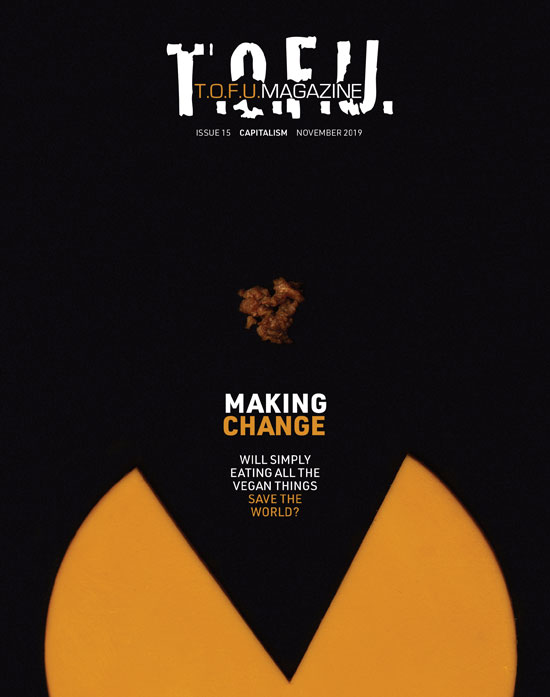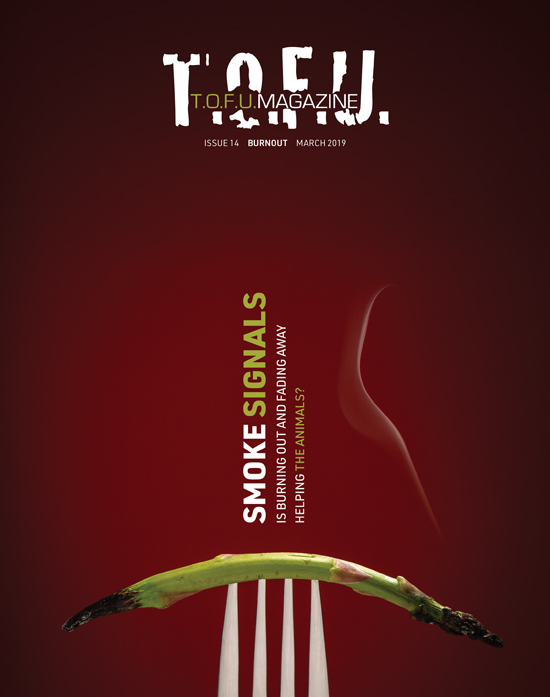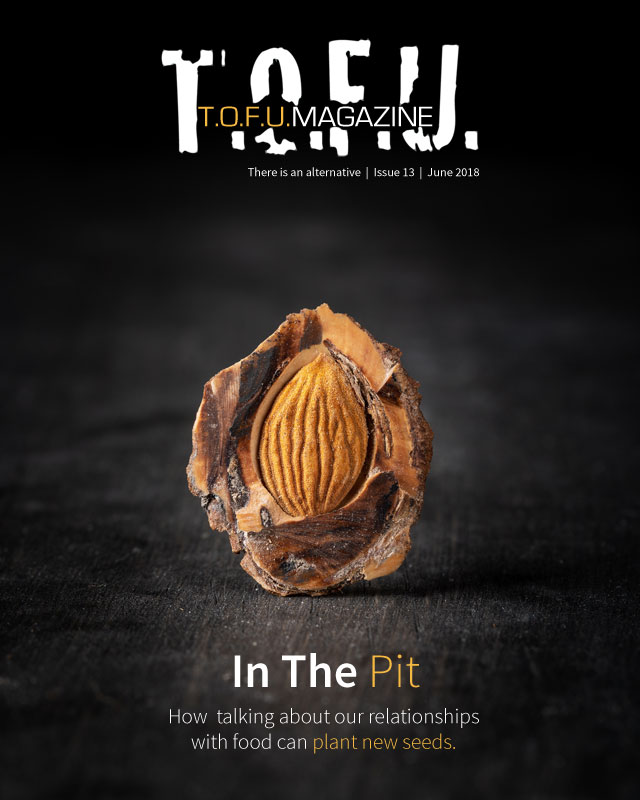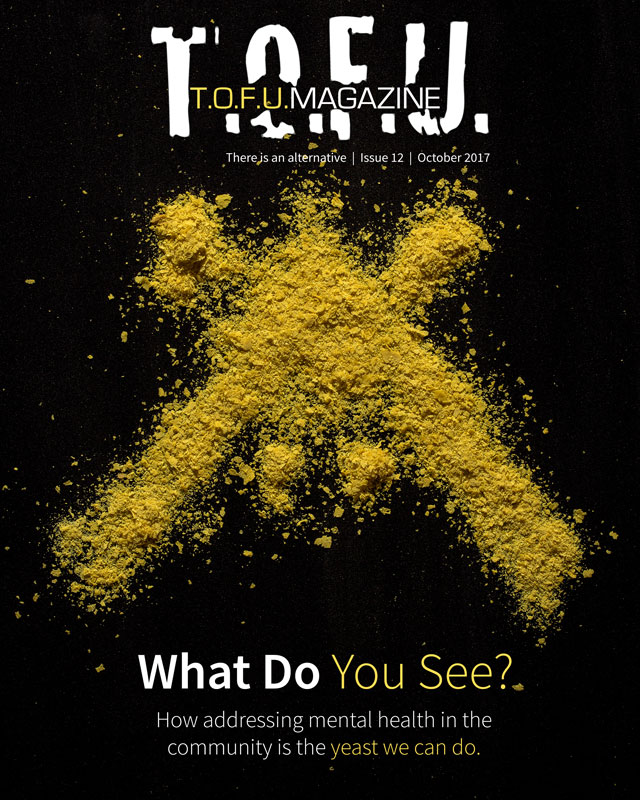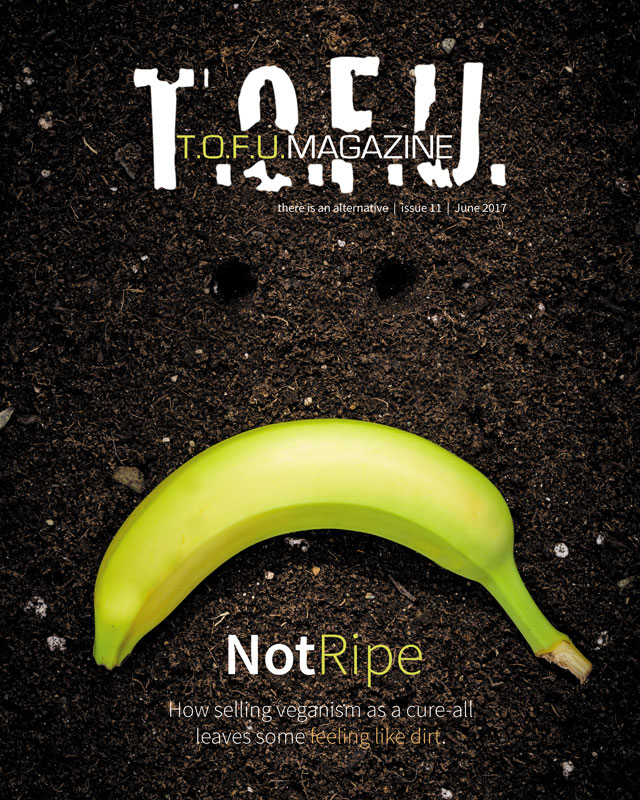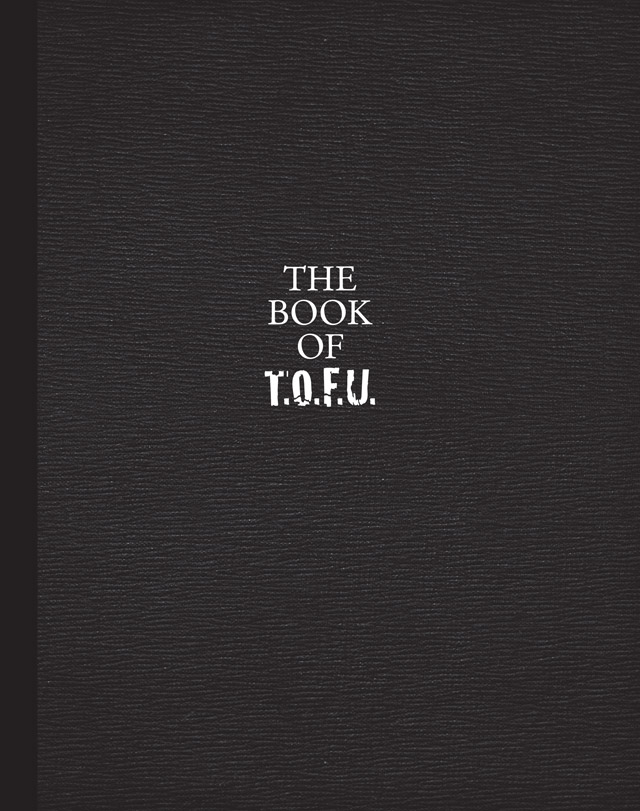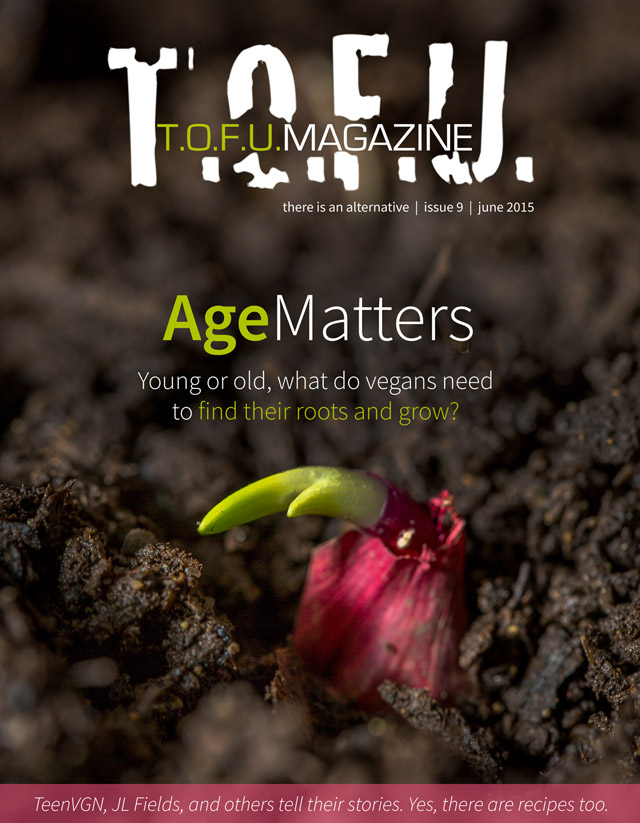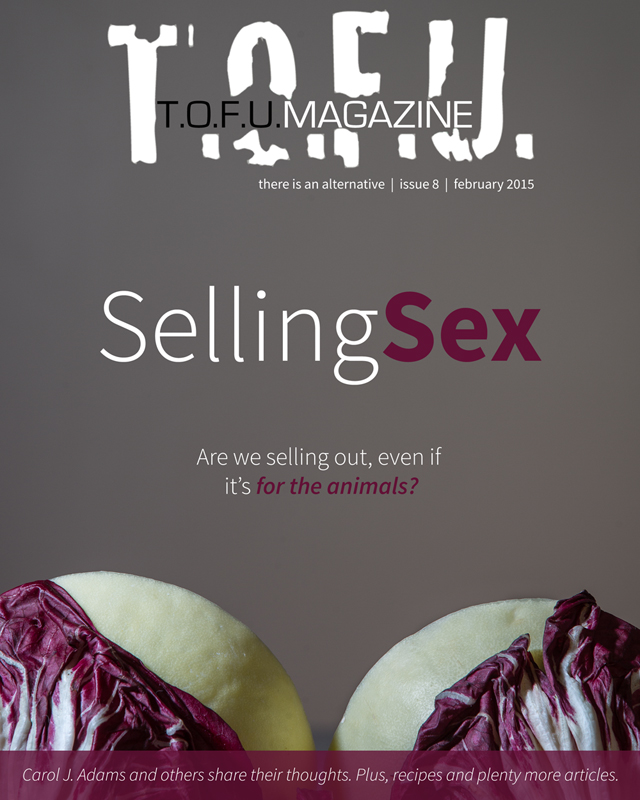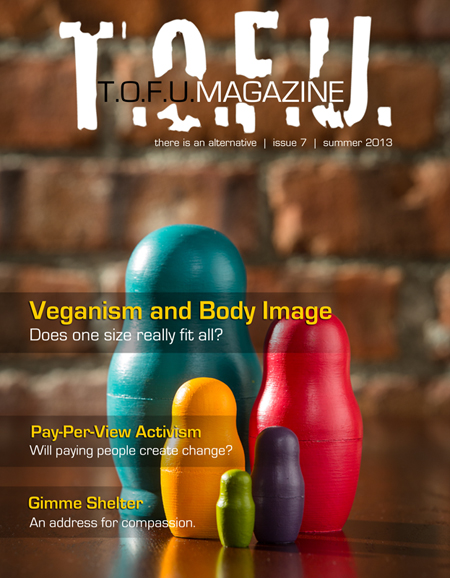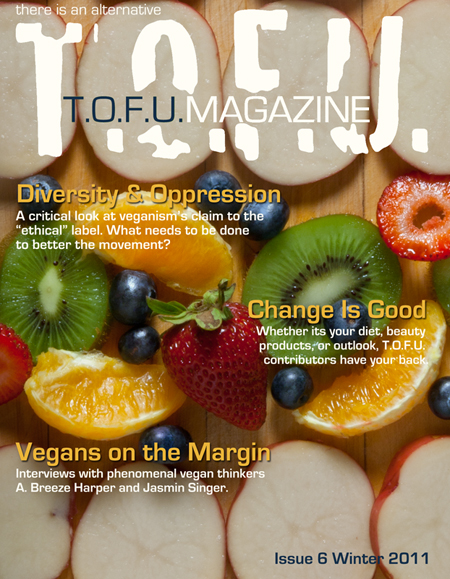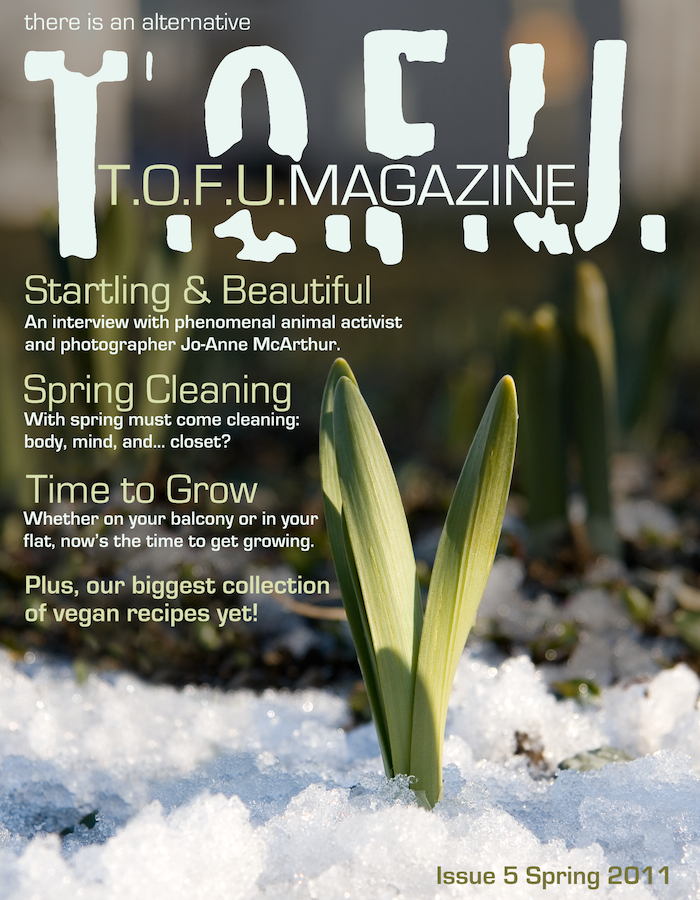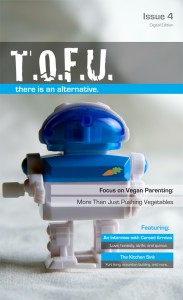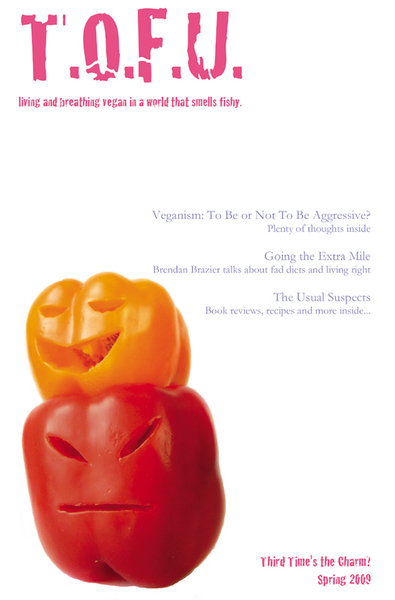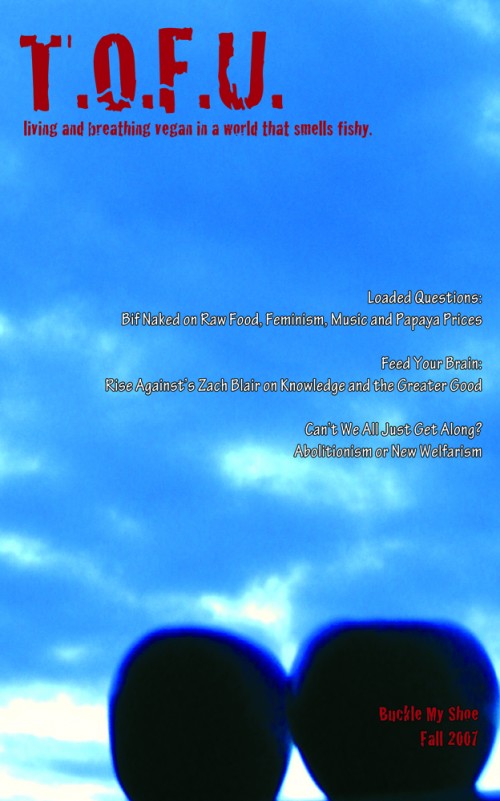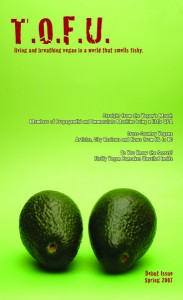#OurNewNormal | Leigh-Chantelle of Brisbane, Australia
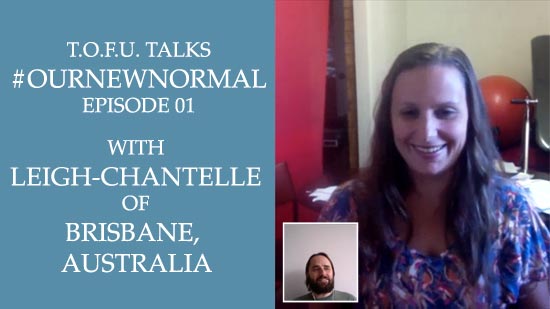
In the first episode of #OurNewNormal, a T.O.F.U. Talks limited series, I chat with my long-time friend, Leigh-Chantelle, about her experience in Brisbane, Australia during the COVID-19 pandemic. From the importance of maintaining her routine to dreaming about her next time at the beach, Leigh-Chantelle explains just what has changed in her new normal.
Learn more about Leigh-Chantelle here:
If you’d like to read the article I wrote for the national paper, you can find it here.
For more from Leigh-Chantelle and myself, please check out our previous T.O.F.U. Talks episode around the concept of a vegan world here.
Podcast
Although the interview was originally done as a video chat, you can now listen to it in an audio-only format available on most podcast platforms, as well as below.
Podcast: Play in new window | Download (Duration: 46:25 — 66.1MB)
Subscribe: Apple Podcasts | Spotify | Android | iHeartRadio | Blubrry | TuneIn | RSS
Transcript
Ryan: Hello, old friend that I’ve seen a few times before. During this series, I’m actually hoping to talk to a lot of different people, some who I haven’t ever actually talked to except maybe with the odd comment or tweet or whatever, and some who I’ve been lucky enough to meet in person and who I’ve talked to online many times. In this case, you and I have met a few times, and we’ve also talked online, during, in-between, those times as well. For anyone else who doesn’t know you, could you maybe just introduce yourself and then we’ll, we’ll get into it.
Leigh-Chantelle: Hi everyone, I’m Leigh-Chantelle. I don’t know about the bit Ryan said about me being old, but we’ll let that slide Ryan.
Ryan: I said “old friend”.
Leigh-Chantelle: But yeah, we’ve known each other for quite a while online, and we met, or we hung out a lot at the Vida Vegan Con a few years ago that was in Portland, and I wore my bird dress that I bought in Portland as well for you. So, get excited everyone. I run Viva La Vegan.net and that’s been going since 2005 and I’ve been vegan for 24 years.
Ryan: I mean, I don’t know, can we still argue against the “old thing” between the two of us?
Leigh-Chantelle: I’ve moved on from that.
Ryan: Okay. I’m just I’m gonna say I’m pretty sure VVC wasn’t a few years ago. I think it was a while ago.
Leigh-Chantelle: It was 2005 or before, 2003.
Ryan: What? No. 2013, maybe.
Leigh-Chantelle: Oh, yeah. It was around Instagram. Yeah, okay, 2013, yeah.
Ryan: Okay. I was gonna say. 2003 was a while ago. It was a whole different world! I mean obviously we’re in a whole different world now, but it was, yeah. So, so right now, where are you, speaking of the world?
Leigh-Chantelle: So, I’m in, around Brisbane in Queensland, the Sunshine State, in Australia. And I’m at my parents’ place at the moment. This year, I’m doing my honours for university. So, I decided to do that this year at the end of last year, and I’m really glad that I did actually.
Ryan: So, I guess obviously, I don’t know. From what I’ve been following in Australia, you know, the pandemic has hit, there’s definitely some concern and everything. Could you give me an idea, maybe, of just how things have changed over the last two to three months? I’m not sure when it first hit Australia, but I think that’s a pretty good timeframe for most places.
Leigh-Chantelle: I think it was the end of last month, and then I’m just basing that on the start of the AFL season, which is the Australian Football League that I’m obsessed with because we started the first, we had the first round, and then just halfway through the first round, we, they said we’re not continuing the season anymore and that was pretty much the week after no kids going to school and then it’s just sort of, you know, spiralling since then I guess. But yeah, we, there’s a lot of different states have different rules and so some people, like in New South Wales and Victoria, that there’s a lot more people that live there so they have a lot, you know, restrict more restricted aspects from day one. Whereas Queensland only just sort of done a few of those things, and Queensland like a really big state that doesn’t have as many people. It’s still a lot along the coastline.
So, yeah, we’re not meant to hang out with any more than two people at once. My mum and my dad are here. So, they’re both over 70, and my mom’s missing seeing her grandson as regularly as they used to. My dad’s missing going to do his hit sessions at the university gym, and, but you know, it’s pretty good. They can still go out together on the walks in the morning and we’ve got a pool at home too. So, Dad and I can still do our swimming, but, yeah, my sister’s still working, her partner is still working and their, my nephew, he’s not at school. So, that’s really good because a lot of people have lost their jobs or they’ve had to work. And because I’m at uni, I haven’t been, I haven’t been working a lot of things for a lot of hours for a long time, so it’s just here and now and that hasn’t been really affected. So, yeah, just in the Uni mode. But, yeah, it’s meant like a lot of people are getting fines for having parties or for more than three people hanging out at the beach. A lot of our beaches have
been closed. Yeah. Because people are just going “oh yeah, I’m not doing anything now. I’m on holiday” and acting as though they’re on holiday when, you know, you should be just chilling a bit.
Ryan: So, what about the university because with your honours, you didn’t necessarily have like a class schedule right or you had some classes?
Leigh-Chantelle: Yeah, we had, so, we’ve got two subjects and then all the rest, like, honours subjects. The one of our subjects, like a counselling one, they had a, we were in one week and we were just trying Zoom with other people and then, like, we’ve always been on zoom since that first day. That’s all and then the other subject is stats subject. The lecturer was trying to keep us all at uni, but then she wasn’t allowed to at the end. And then I have a tutorial for stats as well. So, I was a bit worried about that because stats isn’t my forte and.
Ryan: Same here.
Leigh-Chantelle: And I like a lot of help with that and I really get a lot out of the tutorials. But, it was really cool because when my tutor was doing all the analyses, we use a program called SPSS, he was doing it there, and I had mine open and I could do it right down before the drop down. So, that was really cool. So, it wasn’t as bad as I thought it would be. And, my friends and I, we’ve been just doing, working on our stats assignment together and screen sharing with Microsoft Teams and “oh, have you got this? The thing is your data points, this is what you’ve got” and being able to do that has been really cool.
Ryan: I, you hit a nerve when you said SPSS. It’s been a while. I had to do that with my psychology degree and it was, like, my least favourite part. I haven’t seen that program since I graduated and I’m okay if I never see it again.
Leigh-Chantelle: I know, it’s really painful, but it’s, you know, what I sort of have to do.
Ryan: Oh, yeah, yeah, for sure. So, are you, like, you’re still on track to be able to finish, like, nothing. It hasn’t been delayed in any sense?
Leigh-Chantelle: Well, there’s, because it’s honours, we’re a bit of a higher sort of standard.
Ryan: Yeah.
Leigh-Chantelle: They’ve sort of said to us, like, if you can’t handle stuff now, maybe you should drop out and do it next year. But the undergraduates, who are on the level, they’re not classing things like, if they fail a subject, that’s not gonna be on their GPA. So, they’ve done a few things like that, but we won’t be included in that. The only thing, it hasn’t, to be honest, this hasn’t really affected me because my life’s been about uni for, like. So, I’m just doing it at home. So, because I was at my parents, I’ve been having to drive down to the Gold Coast where I study, and, yeah, so I’ve got more time back because I’m not driving two hours a day when I have to go down, and, yeah, I’m able to just get in the zone and. But because I’m doing a research project this year and I’m doing it with social robots and preschoolers and how the differences between how preschoolers interact with a social robot instructor versus a human instructor, and it really would be great if we could do it in pub. So, that might not happen, but we have a back-up plan. Where we just do it so like what we’re doing here and then it would just be pre-recorded. So, that, we won’t really know until July if that’s going to happen, to be honest, and then there’s another aspect of my year is a placement. So, I meant to get a bit of experience in an area. So, if we’re not allowed to go in anywhere, and there’s a lot of people that have put their names up for placement that just aren’t accepting anyone any way, including PhD, including like higher sort of things as well. So, people might not even want people. So, it will just be taken out of the program, if that happens. And, honestly, I’m okay with that too because then I’ll gain like 30 plus hours. I’m all about the time and energy management. So, that’s not a problem for me.
Ryan: So, you mentioned, was it July you said for the schools? Is that where it’s standing now? They’re not really gonna, is that like all schools or just the university level?
Leigh-Chantelle: It’s just my university. Okay. So, I’m in the middle, I’m halfway through trimester one at the moment. They have extended the break, we had a month break in-between first and second, they’ve added another week to that. So, yeah, I don’t know. A lot of this stuff we’ll know around about week 1 of July, and I think, if, like a lot of places, I’ve just spoken to my friend Ethan from New York and my friend Holly from LA today. Now hear from you in Saigon. But, yeah, I think a lot of people are saying it’s gonna be another two months plus. But just recently allowing kids to go back to school. So, that’s interesting.
Ryan: Okay. It’s kind of funny because, like, here, when it sort of first hit, like, we were kind of on the same. I mean it hit China first for sure, but like it was definitely on our radar around that same time because I mean part of Vietnam shares a border and there’s a lot of, like, back and forth. But both Vietnam and China were pretty much, I can’t remember if it was like the tail end or in the middle of, like, the new year and so, like, in Vietnam for some people, like, they’re off for, like, weeks. In some cases even, like, a month. So, it’s like a serious deal, like, everyone goes back home, cities, like, Saigon is basically empty, getting a flight or a bus or a train is, like, useless cause just everything. So, basically when it kind of hit, they just extended the Tet holiday for at least a week for the kids and stuff and now it’s just continued. Like, right now, I don’t think, I don’t know what they’ve said as of yet, but I think they’re, like, there’s no real talk of bringing the school’s back in and that’s countrywide, like, that’s not just, like, I think Ho Chi Minh City, like, Saigon was the first one to say “okay, we’re shutting the schools” and then, like, the rest of the country was just, like, “yeah that’s a good idea” and then when it kind of started in Canada, like, they had their first case, like, back in January, but it really sort of hit last month and that was, like, right around March break. So, again they just sort of, like, “okay we’ll kind of extend things” but that’s also when they were telling everybody who had left for, like, winter break to go to Florida or, you know, Costa Rica or whatever they were like “okay, everybody get your butts back here, like, things are gonna get serious”.
Leigh-Chantelle: Well we had, so the schools had a week earlier from their holiday. So, that was interstate like New South Wales and Victoria, and then they just did that a bit later for Queensland. Cause I think there’s a different, I think it’s differently paced out. But, yeah, it was, Queensland sort of didn’t get on top of the no schools thing for a while and that was a bit of a problem with the Queensland unions as well because a lot of the teachers were saying “hey, we don’t want to go to school and look after these kids” you know? Especially, like, I heard from some of them that are over 60 because they’ve been saying people over 60 and 70 shouldn’t be going out. They’re not allowed to see their grandkids, but then you’ve got teachers that are that age then are meant to look after other people’s kids. So, everyone was just confused. Yeah. I personally, and really other than that for the older teachers, I really think school is really important to keep going, just you know a psychological aspect for the kids that there’s something that’s, you know, a routine, something is normal and that interaction with their peers is really essential and particularly have to think about accessibility. I know there was a stat from peer research saying that, I think it was, 25% of Americans students don’t have access to Wi-Fi, and our Wi-Fi is ridiculous as well in Australia. And also, if you imagine, all the things like, you know, you and I, we’ve always worked from home, so it’s not a challenge for us to do this. But there’s a lot of people who it is challenging, especially if you’ve got Mom and Dad at home who are meant to be working from home with three or four kids that they’re meant to be schooling. How’s either one of them gonna get done properly? It just won’t, and then there’s some people, if you think about the family’s lives that they grow up in, you know, there’s more people at home, more domestic violence issues happening, there’s more drinking happening as well, and there’s some kids that can’t actually get space to even have quiet or be able to do anything and it’s really troubling. So, I just think it’s really important for the kids to go back to school.
Ryan: Yeah, the, I mean here I wrote a piece for one of the national papers a little while ago to get an idea of, like, what the foreigner community were doing because, like, the schools have been closed now for months, and to see, like, okay, what are, you know, how are the families handling it and everything? Not surprisingly, pretty much everyone I talked to it was all going relatively okay because, I mean, here the foreign population, at least say, like, in terms of like the English first language kind of thing, they’re either teachers, so they’re now all home able to teach their kids or, you know, they’re, like, people that have been doing remote work or whatever for companies outside of Vietnam, so they haven’t lost their income, and also their kids are going to international schools, which are, like, have pretty incredible funding relative to the school system here. So, they, you know, switched over to online learning pretty much soon after they shuddered and, but I am concerned here because there have been so many other people like especially in the smaller communities that, you know, now suddenly, even if the school system is saying “oh, there’s online learning”, like you said like accessibility to the internet and everything. There’s actually a story in the same paper about this ethnic minority group, I think it was in the north, and these two kids were basically going up on this hilltop because that’s where they could get like a 3G signal on their cell phone, so they could go and do, like, some of their classes and their parents put up, like, a little tarp and everything kind of help shade them from the sun, but, of course, then they’re also paying for data, so they actually would take, like, a day off and go work in the field, like, in the farms to make a little bit of money, so they could go and put data on their cell phones so they could go back and do school. And, it’s just, like, wow, that’s, you know that’s like, cuz, I mean so much, if you listen to like a lot of the non-profit’s, one of the big things, of course, is education, and ensuring that kids can have it because, obviously, it’s not just a short-term thing, right? Like, you know, someone missing out on their first year, you know, eighth year or whatever down the road. But, because I think some schools back home, they’ve just decided “oh, you’re gonna pass. Whatever grade you’re in, you’re just gonna, you’re done now.”
Leigh-Chantelle: For the people that are about to finish year 12, like, the last year of school, they’re using your eleven marks.
Ryan: Wow.
Leigh-Chantelle: If you think about like I know, so we have prep now, that you start school from prep, and then year one, and, in Queensland, we start from year one. So, this year, I know it’s affecting universities because all the people that were coming through, but we missed like a year of people, so there was a bit of a, like, not as many people coming through, so not as many jobs, not as many physicians, rarara. So, if you’re thinking about just the flow and effect if you can keep people back a year, if you keep say all these people at the moment to repeat a year, like, that’s, it would just cause so much, like, flow and effect and I don’t think, I think also, like, my nephew he’s doing really well with his studies, and it would affect him somewhat, but people that are struggling, and, like, a few of my friends have children with special needs. They can’t look after them at home, they can’t give them the care that they need that teachers are actually giving them. So, then they’re missing out and other people who are not understanding things as well are missing out. So, yeah, I’m all for going back to school soon as you can and, obviously, the teachers should be able to choose if they wanna do that.
Ryan: Yeah, the, I was thinking, like, could I even, if I had a kid, they wouldn’t really be a kid, they’d be like university age. Could I teach them SPSS if I had to? And, I mean, I, like, I can’t even remember like long division. I mean, cuz all that stuff we learned in, you know, in high school, in elementary, like, I mean most of that now I’m doing it on this thing [shows phone], if I need to, right?
Leigh-Chantelle: I remember long division, so I remember that quite well, but, yeah, it’s. Yeah, I wouldn’t wanna be teaching someone something, and I know a few parents who said “oh, what I learned 20, 30 years ago, then that’s not how they do it anymore” because I think someone was saying something along the lines of “you’d work it out in your head”, like, you knew your times table to work out what, what was, I can’t remember if there was a term for it. But, then they’re saying nowadays, they just go sort of straight to the answer without maybe working out the how. So, that was a bit, that was a bit interesting.
Ryan: Yeah, yeah, I’ve got a few friends who are dealing with, like, little kids, and just, and I think, plus, like, at least at home and here, like, they’re really pushing the social distancing and only going out for required things. So, at home, a lot of people have been pushing back on the fact that, like, they think they should at least be able to, like, go out for a walk or, like, there was, there’s a story actually at home about a family, maybe it was in the States who got fined like almost $900 because they were all rollerblading in a parking lot, and they’re all living together, like, they’re a family, and there was no one else in the parking lot, and a cop actually took, like, whatever, was bothered by this and told them they were supposed to be social distancing, no more than, you know, two people in a group or whatever and gave them a ticket for like almost $900.
Leigh-Chantelle: Yeah, that’s ridiculous. Yeah. Our fine over here is $1,433, and, yeah, it’s, you’re meant to just two people. You can go and exercise. You can go to the doctor. You can go to work. You can go to the shops for essentials. I went to visit one of my friends because I had a Pilates physio appointment, so I went to visit her on the way. She lives alone, and I was joining her, and we went and got takeaway food, ate back at her place. So, you can do some sort of thing like that. But, yeah, it’s not meant to be, you know all the beaches I was saying before are closed because a lot of the people from Brisbane were going down south and, you know, just working on their tans on the beach, which I’d love to do as well. I’m a swimmer. I love oceans. So, that’s what I’m really missing at the moment to be honest, but, you know, we’re not meant to do it, so just suck it up.
Ryan: Yeah, yeah. I’ve talked, there’s been people here have been fined for not wearing masks. One guy is actually gonna be facing prison because he, well, he got in a fight with the cops. He was, he was drunk, and they were like “hey, you’re supposed to be wearing a mask” and he was like “who’s gonna make me wear one?” or whatever and he threw a punch. So, obviously you know, it got a little ridiculous. But, yeah, there’s been, like, the papers covered here like people have been out flying kites and stuff, like, in another district, and they’re basically just, like, “well, we’re bored”. I mean, thankfully, if, you know, believing the numbers that are being reported, like, thankfully it actually hasn’t been really bad here. So, I feel like, you know, I’m taking it serious because I kind of have to because there has been a sort of shift in the attitude of “oh, it’s coming from foreigners” and all that stuff. So, like I feel, like, if I went out without a mask, I would probably, maybe, even get in some trouble. Thankfully, the neighbourhood I’m in, like, the vendors that I deal with in the morning and everything, they know me, they know I’ve been here for over a month, but, like, I was, I was almost gonna sneeze this morning. I was wearing the mask, and I was outside, and I was just like “you cannot sneeze right now” partially because I had a mask on and my hands were full, like, produce and stuff, and I was, like, don’t sneeze in the mask, don’t sneeze in public, don’t do it, no, no, no. Luckily, it passed, but it’s strange, right? Because in so many ways here like, like you kind of said, like, my life hasn’t changed a lot, but when I do decide “okay, I’m gonna go out to the market” and I feel anxious about it that’s when I’m like “oh, wait, things have kind of changed”, like, I shouldn’t be, literally the markets at the end of this street, like, it’s not even a five minute walk. It shouldn’t be, like, a big thing and then I come home and I’m like “okay, take the mask off, go wash my hands, bla bla bla”, but, I mean, then I have friends at home who are, like, going through a serious, like, medical-grade procedure of sterilizing all their groceries and, like, having things delivered at the foot, like, the bottom of their steps and then bringing it in and hand-washing everything and, like. So, I mean there are different extremes, right?
Leigh-Chantelle: Yeah, I’m not at that stage yet. I’m not, like, I don’t know. I’ve always been big on the hand-washing. So, we did a course, last year or the year before at uni about, and my lecturer, she was, like, really into disgust and that was something she studied and she was talking about hand washing, and I also watched this show called The Hot Zone. Did you watch that on TV?
Ryan: No.
Leigh-Chantelle: I know it was around about the time Chernobyl came out and everyone was obsessed with Chernobyl, and no one really put much attention to The Hot Zone, which was amazing. And I read some articles that, I can’t remember her name, the lady from The Good Wife, she was, she starred in it and she was talking about she met the infectious disease person, and she said “just pay attention”, she said “I don’t shake hands anymore because just pay attention to how many times people touch their face” and after I read that I was totally trying not to touch my face. It was really hard. Just like a natural sort of thing that everyone does, including the animal kingdom. And just from then, I’m just really aware of those sort of things. So, I’m just, yeah, I think I was just a bit ahead of that from other people, but again, for me, when I go outside and get, like, you know groceries or something, I’m just really, really aware to be extra nice to the people of the store. People are being so horrible to them, and I just try to have, like, I’m normally pretty sociable and have a chat to people anyway, but I’m just like “how are you going? Are you okay?” You know? And just things like that with people. So, I’m just making a lot more of an effort to do that to be honest.
Ryan: Yeah. I’m hoping this is kind of highlighted some things like that, like, general hand-washing and everything cause I mean I think people are very much, like, more aware now of the environment and, like, how there’s so many chances to get things and stuff, and, I mean, I hope everyone doesn’t go to like an extreme with it cause, obviously, there can be, like, issues with that, but I think people being a little more conscious of it and washing their hands more is, is a pretty good thing. And I’m not sponsored by any soap companies or anything, I’m just saying, in general.
Leigh-Chantelle: Not yet.
Ryan: Keeping your hands clean is nice. Yeah, not yet. I can see the PR emails right now. So, I guess if things haven’t changed that much for you, are there any, like, any things that you have kind of had to change or, like, adapt to, like, any routines that you’ve sort of put on? Cause, I mean, if you’re working from home, maybe not. I mean, I know other people working from home is like a total shift and, like, definitely a weird thing, but for you, like, maybe your two-hour drive not being a part of it is great, but is there anything else that you’re doing?
Leigh-Chantelle: I’m really big on routines and I’m really big on, you know, making sure I’ve got balance in my life as much as you can do that when you’re doing honours year at uni, but I, you know, I get up, I do my Pilates and my yoga and my exercise for say 40 minutes, have a quick swim in the pool for, like, maybe 10 or 20 minutes, you know, have my shower, eat my breakfast while I’m looking at my emails. Then it’s uni work, have, like, half an hour or an hour break for lunch, uni work until 7 or so, and then I watch, like, a couple, like, 2 or 3 hours worth of some of my reality TV shows that I just, and I honestly can’t handle too much at the moment like – like really heavy sort of TV shows. I love Homeland. That’s on at the moment. That’s a bit heavy, but other stuff I’ve just been watching on my reality stuff I don’t have to think about. So, yeah, I’m just doing that. I’m watching the Circle UK at the moment. So, that’s my latest obsession, and then that’s it. I’m just repeating that. I’m doing that same thing every day. So, it’s a bit monotonous, but I’ve just had a uni break, but I’ve had, like, three assignments to do. Well my proposal. So, it’s just, you know, and I’m very good at, like, “this is what I have to do this week and these are the steps I have to do”, and I’ve always been good at “okay, this is my major thing I have to do today, and as long as I do that, it’s okay and then maybe do a smaller thing”, so I think I’m very good at focusing, getting stuff done. I know for people that I’m friends with that don’t learn very well online or that have ADHD or something like that, they’re just not able to focus and they get distracted easily, and it’s really hard for them. But, honestly it’s just, it’s just the same thing for me. I’m just doing it at home. I’m missing the most is I’m not having my oceans things, like, that that was really good for me. Then I loved doing that and just, I just can’t do two kilometres in the smaller pool at home. But, yeah, I’m getting my pilates and yoga stuff, and I’m really just, every day doing that. That helps. Like, as long as I do something physical, and if I do it in the morning then it helps, you know, helps a lot of stuff. Especially, you know, if someone’s anxious and depressed and unexcited about everything, then I really suggest getting to the exercise. It helps with a lot of stuff.
Ryan: Yeah, I’ve had a few friends actually here, two friends, that have been, struggled in the beginning because, like, they suddenly weren’t able to go to the gym and one of my friends has basically been, like, altering his, like, jogging session based on, like, “okay, yesterday there were a few people out so now I’m gonna have to go even earlier” or whatever just because he, yeah, he finds it has been helpful for him. But, yeah, I know most of the stuff I read so far, the routine is definitely a big part of it, and, like I said, like, I’m really bad at it. I always have been, but it hasn’t been a big shift for me because I’m still working from home, but I know, like, my sister is now suddenly working from home, and I think she’s been finding it sort of strange, and I think her cats are too. I’ve got a lot of pictures of her cats lately. I think, yeah, I think a lot of animals now are like “what the hell is, like, I’m glad that you’re here, but you’re ruining my routine, like, I’m supposed to be on your bed sleeping right now, but, you know, now you want to go for a walk, again?”
Leigh-Chantelle: Yeah, we’ve got a neighbourhood cat as well, Scruffles, and she’ll just come along, say it’s really, if you do have animals or you’ve got animals near you, just you know ten minutes in the morning just giving them a cuddle or pat and sit out in the sun if you can. That’s really nice. It’s just, like, little, you have to, like, really appreciate the little things and that, you know, you always like whenever I go to bed always like “thank you universe for these delights”, like, remembering why you should be grateful, like, we’re alive, we don’t have any health problems, our families are doing okay, like, most, you know, like, my family all got their jobs, everyone’s healthy and happy. Yeah, you know we’re a bit inconvenienced, you know, can’t do the things you want to do, but this isn’t forever, and we just do what we can, and, in Australia, we’re doing really well. We’ve only had, I think it’s 9,000 cases at the moment. We haven’t had many people die, and, if you compare that, I know we don’t have as big a population as say America and stuff, but that, that’s pretty good. We’re doing well because of all the, and I like to say “physical distancing” rather than “social distancing” because we’ really, we’re focusing on the social elements, and I’m doing that with a lot of my friends, and you know my uni friends as well, we don’t see each other every day, but we can meet-up on Microsoft Teams, and you know I just got sort of speaking with some people today, and, you know, it’s just focus on those things in particular around sociability and interacting with people.
Ryan: Yeah. Can you imagine, like, if this happened, like, 30 years ago? Like, without being able to do this? I mean, I, granted, I don’t know if I’d be on the other side of the world if I couldn’t just, like, video chat with my parents and everything, but, like, to even, you know, to even, like, not be able to follow Twitter or, like, local news. I mean because now, like, I am able to go out and get a paper, but, like, that would involve going out to get it right, and that would have been your only news, maybe, not 30 years ago, but, you know, a while ago, you would have to get the paper or wait for the local news and, like, your long-distance charges, I would like to think the phone companies would probably have offered a rate, but, yeah.
Leigh-Chantelle: Yeah, well, you know, we’re, we really have a lot of things that we can use to make this less, less bad or easier to deal with. Yeah, just focus on those sort of things, and also try not to get obsessed with the news. Like, I find that a heap of people just put the TV on all day and they’re listening to that all the time and my parents, in the morning, it’s the first thing that they do, and I’m like “you can’t do that”. I mean, you need, like, maybe you know look at the news at 6 o’clock and the news or one o’clock when you’re online, but just, you know, you’ve really got to limit it.
Ryan: Yeah, yeah. Okay. So, I’m supposed to only have,, like, an ending question now, but I do have one other thing that I want to ask you about and, not entirely sure if you can answer it, but since you’re the first person I’m talking to you in Australia, I’m gonna ask. Obviously, similar to Canada, like,, a lot of the country is relatively empty like, I mean, I know there are people within the Outback and everything, but definitely it’s more concentrated on the coast. Has there been any sort of, like, the Canadian government is kind of, like, there’s been some funding initiatives and everything, and definitely some towards, like, northern communities, but there’s also been a big push with a lot of the communities at home, like, for First Nations and Indigenous to shut it down, like, before it even comes into their community because obviously there’s a whole history of that sort of thing. Has there been any, like, concern or communication from, like, the Indigenous populations there, like, has it shown up in the communities at all or…?
Leigh-Chantelle: I don’t, I honestly don’t know how much they’re interacted with. The Indigenous community come up with these decisions. There are, you know, from state-based, like, in the new territory at the top that there was a lot of the Indigenous communities. Or not just there, but throughout Australia that no one’s allowed into them. Yeah. Just meant to stay the indigenous people who have lived in that area, that’s it, and I would like to hope they’ve had interactions with the elders of that area, but you know what white people are like.
Ryan: Yeah.
Leigh-Chantelle: So, I also know in Queensland, my home state, a lot of our cases have been at the Gold Coast, where I do university, and in Brisbane, where I am, and Cairns, which is up north. So, more touristy and a lot of people come and go from Cairns cause it’s up top, so they’re the main sort of areas and there’s been a lot of regional areas within Queensland that have closed their borders and won’t let anyone go into it, like, Long reach or I know, I think there are some cases in Toowoomba and, where’s the other place? There’s a few that are, that had some cases and they just didn’t want it to go out any further. So, there’s been things like that because, like I said, our state is massive. So, there’s just so many, so many little areas. So, they’re trying to not get it from the city all the populate areas into those regional areas, and it seems to have worked so far. Okay. Cool, yeah. Before about people coming into your area, the majority of people who have had coronavirus, and the people who have had COVID-19, and who’ve died are people who have come off boats. Okay. What are they, the tourist things? Cruise ships. Yeah, cruise ships, that’s it. And so they’ve, a cruise, one cruise ship in particular docked in New South Wales that has had, I think 200 people and a large majority of them got sick, and all that who died yeah and people who have come from overseas. So, they’re the people here who have infected other people, but generally it hasn’t really happened unless those things have been.
Ryan: Yeah. I read an article a little while ago that, apparently, cruise ship bookings have gone up for next year. I don’t understand why cause, to me, this is like the sort of final nail, being like, “it’s a bad idea to be stuck on a boat with a lot of people”.
Leigh-Chantelle: I remember talking to my parents about that last night because they were saying “ah, I think they’ll struggle next year”. No, because you’ve got everything, like,, I’m just thinking about people in Australia, certain type of people in Australia, who don’t want to go outside of the norm and what they’re used to, they’re quite happy to be on a boat and have all their food, especially alcohol, provided, and now I think they’re adding free Wi-Fi or it’s more affordable, and you’re just there, and you just do whatever you want. So, I think that’s a really, I can fully understand why people would want to do that. I’m not into cruise ships. I’ve never been on one, and don’t know what they’re like, but I don’t like the idea of being trapped somewhere you can’t escape from, but yeah it’s all there. You pay a certain amount of money, you’re covered, you don’t have to worry about it. Kids or your family. You can meet-up with all your friends. Yeah,
Ryan Patey: I can see the selling point. I just I would have thought there’d at least be like a year of like going “no, maybe we’ll do something else next year”.
Leigh-Chantelle: But also, people, like. Here, well here in particular, they’re, like, make sure you support these people, make sure you support them. So, they’re probably, you know, some of them think they’re wanna go on a holiday, they’re like “who’s been affected the most? Ah, it’s the cruise ships. We’ll support them”, and, yeah, it’s that I think is that sort of mentality. And also, remember, people forget really easily. So, there’s a heap of things that I’m hoping will stick around, like, being a bit nicer than before and just you know, people are making more of an effort to communicate with people instead of just texting and social media. So, I hope those sort of things stick around, but then once we go back to normal, people just remember, you know, unless this goes to say six months or something, I think things will just go back to normal.
Ryan: Yeah. Well, so speaking of, now I’ll ask the ending part. Talking about the ending of the pandemic, not the ending. Hopefully it won’t come to that. Your first day when you get the all-clear and everything’s back to normal, what do you, what do you want to do?
Leigh-Chantelle: Probably, I’d go to Palm Beach, which is down the coast, at the Gold Coast, and have a swim there, do my laps in the ocean and do about 2k over there, and then read a book, and, yeah. Goto some of the vegan places. We’ve got a heap of vegan places to eat down there. Get a smoothie, falafel, or some pancakes.
Ryan: Oh, falafel.
Leigh-Chantelle: Yeah, there’s a really good falafel place at Burleigh. Ryan, I’ll take you there one day, but, it’s yeah, that’s what I’d do.
Ryan: So, what about, speaking of supporting travel and everything, what about a month from now or from then or later on will you be doing any travels?
Leigh-Chantelle: I would love to travel November and December cause I finish, our thesis is due Friday 30 October 12 p.m. Not that I know that in my head or anything. Yes, so, I’d like to do something after that, but it just depends where the world’s at, doesn’t it? So, I’d like to be overseas in my beloved Ubud, in Bali, Indonesia. So, that’s what I’d like to do. But yeah, we’ll see. Not to, I can’t really make too many plans when I’m at uni, you know. I’m just trying to get through the year really and see where I go, if I do my PhD next year and, also all this, all this stuff puts some plans on hold, most plans on hold, doesn’t it?
Ryan: It’s, yeah, it’s, it’s an interesting thing. I mean I feel it’s kind of strange because I feel like, you know, it’s sort of happened kind of slow, kind of, maybe not as slow as people would like, but, you know, we see all those disaster movies you grow up with all these like major earth changing things, but they’re all usually like super quick, like there’s an asteroid headed to us and Bruce Willis has to save us or whatever, but this has been like months. So, I just wonder if, like, we’re kind of, I mean, I feel like people are aware, yeah, like, stuff is different and this is serious. Well, most of us are, but I wonder if it would have been like a whole different thing, if it just suddenly, like, one day changed or, like, I mean cause this could be you know this could be months into, like, I mean they’re talking before a vaccine to be, like, 12 months to 18 months, so it’s this long drawn-out change of the world, but I mean, like, will they ever make a movie of it? I don’t know cause it’s not as dramatic right, like.
Leigh-Chantelle: But, when you’re saying that, I think thee’s elements, like, say I can probably compare it to like a world war starting or something there’s elements of that happening, like, there’s, you know, “oh yeah some dude called Hitler’s like getting the people to uprise” and they’re like having heaps of meetings and stuff and there’d be, you know, spies from all those sort of countries that would have, that would know people on the ground that are talking about this stuff people that have said “oh yeah, I was, I’m mates with one of the”, not me, but I’ve heard people say, like, “I’m mates with some of the people that do the disease or whatever it’s called, Disease”, I can’t remember the time, he worked in infectious disease, and he said to me months ago “something’s coming”. Yeah, if you’re interested in that, like, infectious disease, you’d be, like, “ah, mate, did you read this article that so and so from China” or “China did this’ or something, you’re putting all that stuff together, but we’re not interested in it, the media is not interested in it until it’s, like. If you’re really attuned to all that sort of stuff, you probably know something’s coming, and it’s just when we were not, most people weren’t aware of it until they had to do something to change cause then it’s affecting them, isn’t it?
Ryan: Yeah, yeah. I mean granted some people still aren’t, like, in some ways, I feel like because of how things are going here, like, if it had gone different, I mean right now we’re at, like, I think 265 cases, maybe a little more and nobody’s died and there’s, like, probably 140 something recovered so we’ve only got, like, I think active cases there’s only, like, 90 or something.
Leigh-Chantelle: Canada or Saigon?
Ryan: No, this is in Vietnam. Canada, Canada’s a bit of a disaster. Like shockingly so. Speaking in terms of preparation, and there’s been articles between Canada and the States and the UK about how much people knew and how many people who were saying, like, “look this is, yeah, this is gonna be a thing, like, we need to be ready for this”, but I think like I kind of said like because it’s not some you know really tangible dramatic thing it’s like “oh, there’s this little bug that we can’t see it, it’s gonna take over the world” and people were like “what, you mean like the flu? Like, whatever”.
Leigh-Chantelle: If you think about all the people that, like, the climate change people who’ve been speaking out about climate change and all that sort of stuff for years. Who’s been paying attention to them? We just started to cause we had a heap of floods and fires, but it’s the same sort of thing. Instead of actually listening to the people who know what they’re talking about, and it’s, like, their expertise, we go “Oh no, let’s not freak out. It’s not a problem.” Like all the Trump and the Fox news and sort of stuff like that’s not helpful. You want to be telling people the actual truth. But that doesn’t sell. We know that. Emotions sell things and outrage.
Ryan: It’s too bad that the, is it Dr. Fauci, I think, who’s like the big, the infectious disease guy in the States that, should be, sort of overseeing the meetings and everything, I mean he, you know, he can’t really be the movie superstar right, like, he’s not the Bruce Willis or The Rock.
Leigh-Chantelle: Why not?
Ryan: I know. I mean, like, apparently, a lot of people have been falling in love with the guy. He’s got fans apparently, like, that have been rather vocal about their love for him. So, I think that’s great. I mean with both of us, you know, with the university background and the stats and everything, having scientists be up on a a good sort of Hollywood celebrity status, that’s fine. I mean that’s the way the world should be headed now because I think we need that. Unfortunately, we need a lot of stats too, which I’ll let them deal with.
Leigh-Chantelle: That’s another thing because all the stats is just very coming from China it’s just starting to come from China now that we can actually do anything with, but the majority of stuff we don’t have stats for to say “oh, we should do this or we should do that”. Hand cleaning or hand washing and the mask supposedly doesn’t have enough stats to say that that actually prevents anything, but that’s all we’ve got, so that’s what you do. And there’s a lot of, you know, people were saying “oh, we should stop the kids from going to school because then they’re spreading stuff to their grandparents”, but that’s just based on the flu. There’s no stats to back it up at all. So yeah, everyone, just in my opinion, I hope everyone’s trying their best to get through it and try to listen to the people who know what they’re talking about and don’t spread all the disinformation and misinformation cause there’s a lot of it out there.
Ryan: Well, on that note, I’m gonna say thank you so much for joining me to share sort of your corner of the world. Well, not corner, because I don’t want to suggest a flat earth, but your piece of the world, and hopefully, at some point, we’ll cross paths again when the planes are flying and everyone’s back to normal. We don’t have to shake hands when we do meet again. It’ll be good to see you in person and we’ll talk again soon.
Leigh-Chantelle: Thanks everyone for your time and take care of yourself and each other. Bye.

